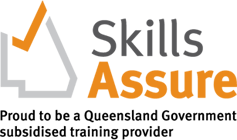If you’re considering taking a CHC52015 Diploma of Community Services course, it’s common to have many questions. One thing we’re asked the most is: how long will it take me to complete this course?
The short answer to this question is that every applicant is different! You can structure the Diploma of Community Services course around your schedule and complete it at a pace that works for you.
Many of our clients complete our program in under six months. Some require longer to fit their studies around a busy schedule. No matter your situation, Sage will provide the necessary support to help you gain job-ready expertise that you can confidently apply to your chosen career.
In this blog, we’ll explore how long you can expect to spend on the course, what you’ll learn, which career doors you’ll open, and why you should enrol with Sage Education to complete your Diploma of Community Services.
What is a Diploma of Community Services course?
The Diploma of Community Services is an accredited qualification designed for those interested in case management, community services and social housing work.
It trains candidates to manage, coordinate and provide practical, holistic support to communities, groups and individuals.
The program builds on the knowledge gained in qualifications such as the Certificate III in Individual Support course. In comparison to this course, the Diploma focuses on preparing candidates for leadership and management positions.
The program is self-paced online, meaning you can access your course content anytime, anywhere – even from the comfort of your home.
Whether you need to work around a full-time job, family commitments or further studies, the Diploma of Community Services course will allow you to study at a pace that suits you.
The course also includes a required community work placement, providing relevant real-world experience that you can apply to your chosen career.
How long will the course take with Sage?
At Sage, we provide an intensive, streamlined version of the Diploma of Community Services course.
Our program is delivered full-time over 30 weeks. This includes 100 hours of vocational placement in a relevant community services industry.
We understand that no two applicants are the same. That’s why our course is self-paced and taught entirely online. If you can’t make an online session, you can access all the study materials online. This means you can study the course material at your own pace at a time that suits you.
In total, you will have one year from the course start date to complete the program. During this time, you’ll receive full support from our world-class team of trainers, who will guide you through the process, provide valuable advice and answer any questions you may have.
What will I learn during my Diploma of Community Services?
The Diploma of Community Services course will give you the practical expertise and relevant knowledge to make a tangible difference in people’s lives.
If you want to gain specialised skills to prepare you for advanced work in the community services sector, this is the course for you.
You’ll learn how to help people through difficult times, implement community development strategies, and offer valuable services to a diverse range of people.
Throughout the process, you’ll also become confident in case management, build job-ready expertise, and attain transferable leadership skills that will prepare you for work in the community services sector.
How is the course structured?
Our Diploma of Community Services course contains a range of essential modules that must be completed to become accredited.
We also offer a range of elective units that enrollees can take if they want to gain specialised knowledge in a particular area.
Core units
There are eight core units in the Diploma of community services qualification.
CHCCCS007 – Develop and Implement Service Programs
This unit will teach you the skills required to engage clients, analyse the complex service requirements of groups and build programs that meet those needs.
You’ll be expected to assess needs on an individual basis, implement and monitor support programs, and effectively communicate with clients to provide the best service possible.
CHCCOM003 – Develop Workplace Communication Strategies
This unit will provide you with the skills needed to develop communication protocols within a team.
You’ll learn how to build and establish communication strategies, promote their use, and review existing strategies to optimise their effectiveness.
CHCDEV002 – Analyse impacts of sociological factors on clients in community work and services
This unit will provide the skills required to undertake community work and services.
You’ll learn about the broad contexts surrounding your role as a community services worker and build an understanding of cultural issues that impact clients in Australian society.
Note: This module includes your 100 required hours of vocational placement.
CHCDIV003 – Manage and promote diversity
This unit will teach you the skills needed to promote inclusion and diversity in the workplace.
You will learn how to research and understand diversity procedures, foster inclusion for everyone in the workplace, and adapt strategies to meet the diverse needs of individuals.
CHCLEG003 – Manage legal and ethical compliance
This unit will give you the knowledge required to research, develop and stick to legal compliance and ethical practice responsibilities.
You’ll be assessed on your ability to research legal compliance, understand ethical responsibilities, effectively communicate policies and review compliance strategies as necessary.
CHCMGT005 – Facilitate workplace debriefing and support processes
This unit will provide you with the skills required to support workers.
You’ll learn how to monitor colleague welfare, offer personalised support to different individuals and conduct debriefings after distressing incidents.
CHCPRP003 – Reflect on and improve own professional practice
This unit provides the necessary skills to evaluate your own professional practice through reflection and development in line with industry standards.
You’ll be required to self-evaluate, determine improvements based on peer feedback, and use learned information to improve your practices.
HLTWHS004 – Manage work health and safety
This unit teaches the skills required to maintain workplace health and safety in line with WHS legislative requirements.
You’ll be required to establish health and safety procedures, communicate effectively with staff to help them understand protocols, and monitor and evaluate practices, making adjustments as necessary.
Elective units
Sage offers eight elective units that students can optionally take to further develop their skills.
CHCCCS004 – Assess co-existing needs
This unit will provide you with the core skills required to assess the diverse needs of individuals and understand the services required to satisfy those needs.
You’ll learn how to gather information, evaluate and analyse complex conditions, and assess potential risk factors to help you provide the best service possible to every individual.
CHCCSM004 – Coordinate complex case requirements
This unit will teach you the knowledge and skills to coordinate holistic case requirements for clients with complex needs.
You’ll be required to analyse client developmental status, develop a comprehensive plan to identify possible approaches and work with the client to overcome challenges and minimise confusion.
CHCCSM005 – Develop, facilitate and review all aspects of case management
This unit provides the skills needed for effective case management, including how to plan and implement service programs.
The module will teach you how to collaborate with clients to understand their needs, develop tailored case management processes that align with statutory requirements, and closely monitor casework processes to ensure their effectiveness.
CHCCSM006 – Provide case management supervision
This unit places the focus on leadership. It will provide you with the skills to supervise the delivery of a high-quality case management strategy.
You’ll be required to enforce and promote case management best practices, offer proper support to colleagues, and provide feedback and advice to aid the effective implementation of strategies.
CHCCCS006 – Facilitate individual service planning and delivery
This unit will teach you the required skills to develop, implement and monitor individualised support processes.
You’ll be expected to maintain communication with the client, plan and implement a multi-faceted service, and review decisions in line with the client’s wants and needs.
CHCDIV002 – Promote Aboriginal and/or Torres Strait Islander cultural safety
This unit provides the knowledge and skills to identify Aboriginal and/or Torres Strait Islander cultural safety in the workplace.
You’ll be assessed on your ability to understand cultural bias, implement cultural safety strategies in the workplace, and evaluate the effectiveness of these strategies.
CHCPRP001 – Develop and maintain networks and collaborative partnerships
This unit teaches the skills needed to identify, foster and maintain networks to improve support processes.
You’ll be taught how to identify opportunities for collaboration, build relationships with relevant organisations and represent your institute effectively and confidently.
CHCADV001 – Facilitate the interests and rights of clients.
This unit provides the skills required to help clients understand their rights, raise concerns and realise their best interests.
You’ll learn how to adjust your practices to align with client preferences, provide consistent support, support clients as they make a complaint, and review progress to adapt strategies as necessary.
Who should take the course?
The course is ideal for those currently working as support workers, as it will build on their expertise and allow them to progress into senior leadership roles in their industry.
However, the qualification is also suitable for those seeking a career change or students who have completed a relevant Certificate III or IV course such as a Certificate III in Individual Support, Certificate IV in Ageing Support or Certificate IV in Disability course.
What are the entry requirements?
There are no formal entry requirements to start the course. However, it is necessary to have some level of prior learning that proves you have the experience needed to complete the program successfully. This could be in the form of work experience or previous courses completed.
To get the most out of their time on the course, we also recommend eligible students have the following:
- A computer with high-speed internet
- A device that can be used for audio playback
In addition, it’s also recommended students have the following skills:
- Fundamental computing skills.
- A basic understanding of literacy and numeracy.
- A passion for leadership and a desire to improve management skills.
- The ability to connect with individuals from all walks of life.
- The confidence to work both in a team and independently.
Can I get my student tuition fees subsidised?
Depending on your situation, you may be eligible to claim a government-subsidised place on the Diploma of Community Services course as part of the Queensland government’s Higher Level Skills program.
You can apply for a government subsidy on our Diploma of Community Services course as long as you meet the following criteria:
- You must be a Queensland resident.
- You are over the age of 15 and are no longer attending school.
- You are an Australian or New Zealand citizen, an Australian Permanent Resident, or on a pathway to PR.
- You are not a holder of, or enrolled in, a certificate IV level course or higher education qualification.
- You have completed a Certificate III in Individual Support course or hold an equivalent certification.
- You are employed as a support worker.
If you own a Centrelink card, such as a healthcare or pension card, you may also be eligible for a concessional fee in addition to your government subsidy.
What job outcomes can I expect after my course?
Following your course completion, you can expect to find a relevant role in the community services industry in a position such as:
- Case worker or manager
- Community services worker
- Case coordinator
- Welfare worker
- Support facilitator
- Program manager or coordinator
- Client service assessor
At Sage, we are committed to helping all of our clients secure jobs in relevant industries. That’s why we partner with top employers throughout Australia and build our clients’ employability skills to prepare them for work.
Why choose Sage Education?
Sage Education is one of Australia’s leading providers of accredited Diploma of Community Services courses.
Since our launch in 1998, we’ve helped over 3000+ successful graduates build lifelong skills, gain promotions and start rewarding careers in relevant industries.
Sage is more than just a course provider. We also help each of our clients secure relevant roles in rewarding careers once they’ve completed their training.
Employers actively seek our candidates because they understand that Sage graduates have the skills to succeed in vocational roles. We’re proud to say that we help almost all of our successful graduates secure well-paid jobs in relevant industries within three months of completing their course.
If you’d like to learn more about our world-class Diploma of Community Services qualification, click here.
Want to get in touch? Contact us here – Our expert advisors are always on hand to offer valuable advice. Whatever your ambitions, our professional team is committed to helping you secure the career of your dreams.



